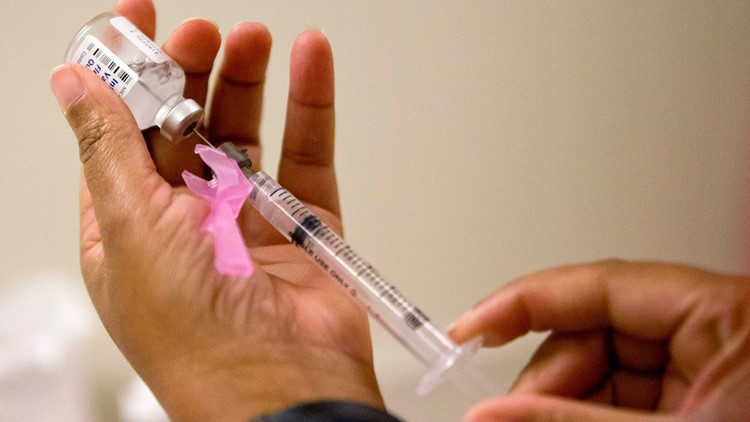The flu season is upon us and Americans are being urged to get the flu shot before the end of October. Whether you are at home, work, at the gym or out on the town, you can be exposed to the virus at any time. And as parents know, kids at school or daycare pass viruses around like they're candy.
Here are five facts about how the flu shot works including one that debunks a widespread theory about the vaccine.
Why do I need to get a flu shot every year?
The Centers for Disease Control and Prevention (CDC) says there are two reasons for this:
- Over time, your body's immunity to the flu declines. Getting the vaccine every year increases your protection.
- The flu changes every year, so the vaccine is updated accordingly.
Will I still get the flu after I get the shot?
Maybe. The flu shot is never 100% effective because there are many variations and the shot doesn't always protect against all of them. Also, the vaccine takes about two weeks to take effect. So, if you picked up the virus right before getting the shot, or anywhere in that two-week window, you may still get the flu.
Can I get the flu from the vaccine?
This is a popular theory from people who have gotten sick after getting the shot. As mentioned earlier, you may still get the flu, but the CDC says it won't be from the vaccine.
"Flu vaccines given with a needle are currently made in two ways: the vaccine is made either with a) flu viruses that have been ‘inactivated’ (killed) and that therefore are not infectious, or b) using only a single gene from a flu virus (as opposed to the full virus) in order to produce an immune response without causing infection," the CDC says on its website.
That doesn't mean you may not have some other reaction to the vaccine. The CDC says common side effects from the flu shot include soreness, redness, tenderness or swelling where the shot was given. The recipient could also have a low fever, headache or muscle aches.
For those who get the nasal spray flu vaccine, side effects can include runny nose, wheezing, headache, vomiting, muscle aches, fever, sore throat and cough.
A few people may also suffer allergic reactions to the vaccine, but this is not the flu.
Can getting two flu shots better protect me?
The CDC says studies have found adults who get more than one flu shot in the season do not see added immunity from the virus.
It's different for children. Those between 6 months old and 8 years old who have never been vaccinated or who have only had one shot in a previous season should get two shots this season. But the first shot should be early in the season and the second should come four weeks later. If they have already had two shots in one season, then they only need one this year.
Children under 6 months old are too young to get the vaccine, the CDC says. This is why pregnant women are encouraged to get the vaccine during the pregnancy to help protect themselves and the child.
What if I don't get the shot by the end of October? Should I even bother?
Yes. The CDC says the peak of flu season is December through February, and the season can last well into spring. The advice about getting it by the end of October is because seasonal outbreaks have been known to start that early.



